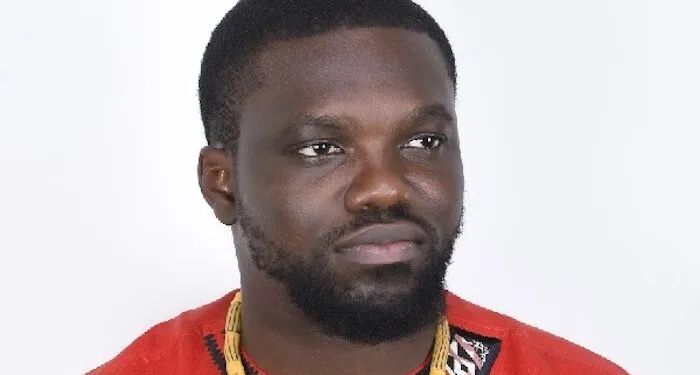The following analysis and report is based on information obtained from a video by journalist David Hundeyin:
The American Enterprise Institute (AEI), a prominent Washington, D.C.-based think tank, has long influenced U.S. government policy and federal legislation.
Over the past nine months, AEI Senior Policy Fellow Michael Rubin has published a series of articles advocating for U.S. diplomatic and military support for Biafran separatists in Nigeria’s southeast, framing it as a mission to “protect oppressed Christians” from a “hostile Islamic majority.”
This report examines Rubin’s claims, revealing a pattern of misrepresentations and omissions that suggest a broader agenda to destabilize Nigeria and facilitate neo-colonial resource exploitation.
Misrepresenting Nigeria’s Religious and Ethnic Dynamics
Rubin’s articles conflate Nigeria’s religious violence, primarily in the Northern and Middle Belt regions, with the Biafran separatist movement in the southeast. Nigeria’s population is roughly evenly split between Christians and Muslims, and the areas affected by religious violence are ethnically and geographically distinct from those linked to Biafran separatism. Rubin’s failure to acknowledge this distinction misleads readers and oversimplifies Nigeria’s complex challenges.
Furthermore, modern Biafran separatism is not a Christian nationalist movement. Separatist leaders, such as the Indigenous People of Biafra (IPOB), frame their struggle in ethnic and self-determination terms, not religious ones. Rubin’s portrayal of Biafra as a Christian cause appears designed to align with Western geopolitical interests.
Glorifying a Violent Extremist
Rubin’s articles describe Simon Ekpa, a Finland-based Biafran separatist leader currently on trial for terrorism, as a “persecuted African dissident.” Ekpa has been linked to violent attacks and economic disruptions in Nigeria’s southeast, including enforcing “sit-at-home” orders through intimidation. By whitewashing Ekpa’s actions, Rubin risks legitimizing extremism and providing a pretext for foreign intervention.
A Neo-Colonial Agenda?
Critics suspect that AEI’s advocacy is driven by a desire to access Nigeria’s gas reserves in the southeast. Balkanizing Nigeria would create smaller, weaker states, potentially easier for external powers to exploit. This mirrors historical patterns of neocolonial interventions in Africa, such as the 2011 NATO campaign in Libya, which led to long-term instability.
Implications for African Unity
Nigeria’s fragmentation would weaken regional institutions like the African Union and ECOWAS, embolden other separatist movements, and undermine African self-determination. Rubin’s narrative dismisses Nigerian calls for internal solutions, such as governance and security reforms, in favor of external interference.
KEY TERMS YOU SHOULD KNOW
- American Enterprise Institute (AEI): A conservative think tank based in Washington, D.C. Think tanks are organizations that perform research and advocacy concerning topics such as social policy, political strategy, economy, military, technology, and culture. They often influence public policy and legislation.
- Washington, D.C.: The capital city of the United States, a hub for political activity, lobbying, and think tanks.
- Michael Rubin: A senior policy fellow at the American Enterprise Institute whose articles are central to this report’s critique.
- Oppressed Christians/Hostile Islamic Majority: Terms used by Michael Rubin to frame the Nigerian situation, implying a religious conflict where Christians are persecuted by Muslims. The report challenges this framing as a misrepresentation of Nigeria’s complex dynamics.
- Indigenous People of Biafra (IPOB): A prominent Biafran separatist organization. They advocate for the independence of Biafra and have been involved in various activities, some of which have been deemed disruptive or violent.
- Simon Ekpa: A Finland-based Biafran separatist leader. The report highlights his alleged links to violence and economic disruptions and his ongoing trial for terrorism.
- Persecuted African Dissident: How Michael Rubin reportedly describes Simon Ekpa, a characterization the report critiques as “whitewashing” his actions.
- Sit-at-home Orders: Directives issued by separatist groups, often IPOB, ordering residents in Nigeria’s southeast to stay home on specific days, typically enforced through intimidation and sometimes violence, leading to economic disruption.
- Neo-Colonial Resource Exploitation: The idea that external powers seek to exert indirect control over a country’s resources (like gas reserves) for their own benefit, often by fostering instability or creating weaker states, rather than through direct colonial rule.
- Balkanizing Nigeria: The process of breaking up Nigeria into smaller, often ethnically or religiously homogeneous, states. This term implies fragmentation and division.
- African Union (AU): A continental union consisting of 55 member states located on the continent of Africa, working to promote unity, solidarity, and cooperation among African states.
- ECOWAS (Economic Community of West African States): A regional political and economic union of fifteen countries located in West Africa, promoting regional integration and cooperation.
- African Self-Determination: The right of African peoples to determine their own political status and freely pursue their economic, social, and cultural development without external interference
CONCLUSION
AEI’s push for Nigerian balkanization, through Rubin’s misleading articles, threatens Nigeria’s sovereignty and African unity. By misrepresenting facts and glorifying extremists, AEI appears to be laying the groundwork for a destabilizing intervention. Africans must remain vigilant to protect their continent’s future from such agendas.
WATCH DAVID HUNDEYIN’S VIDEO THROUGH THE LINK BELOW:
ALSO READ TOP STORIES FROM VERILY NEWS


















